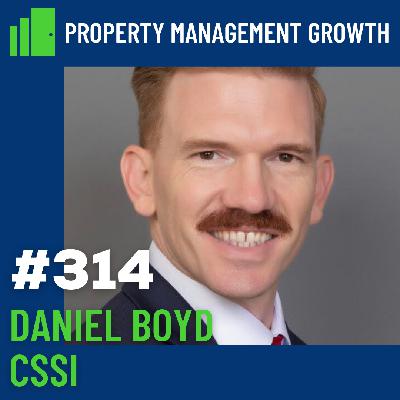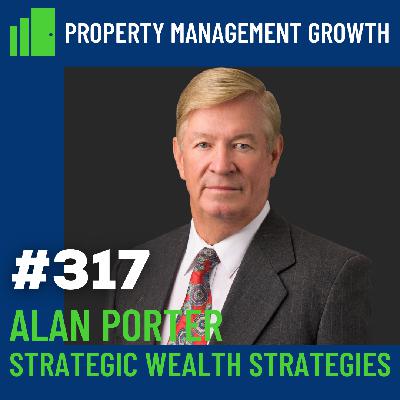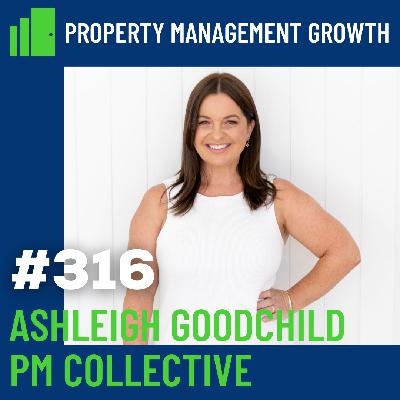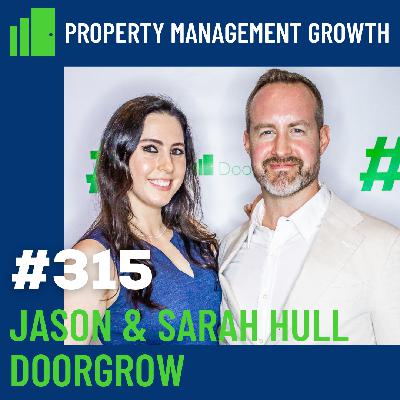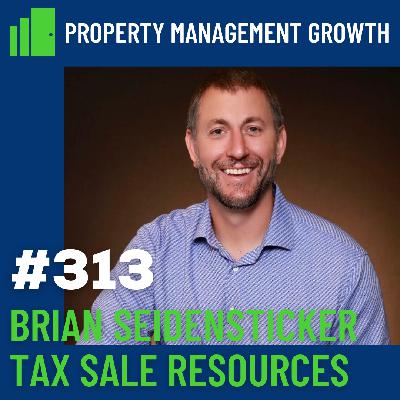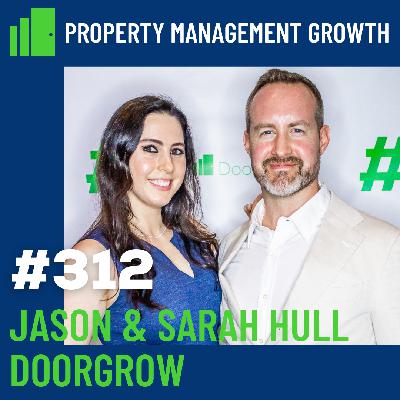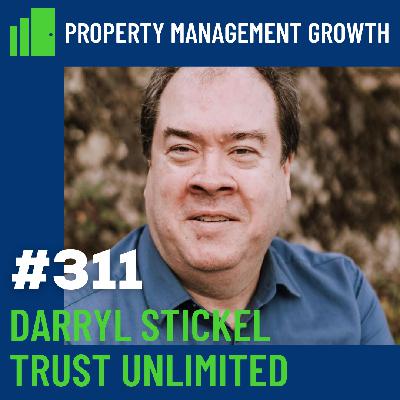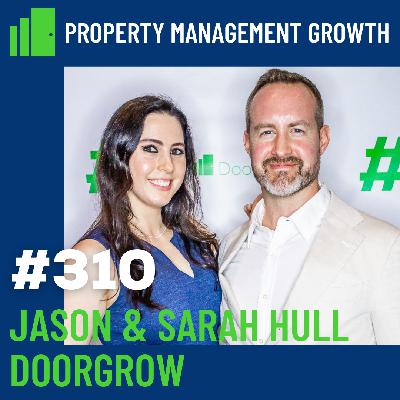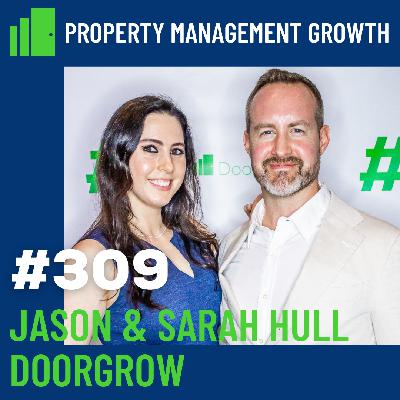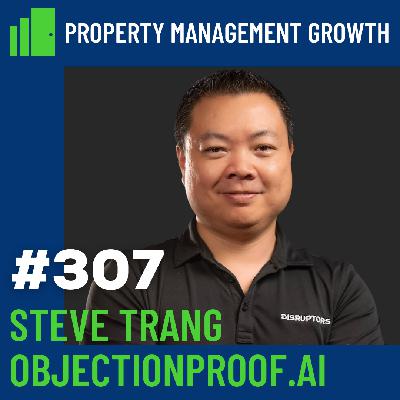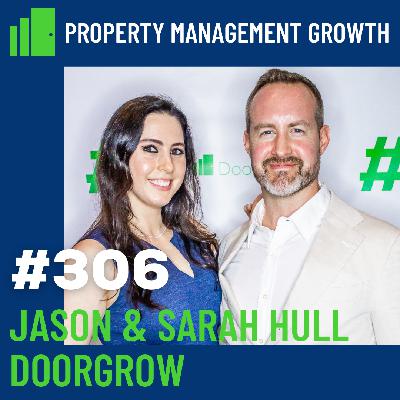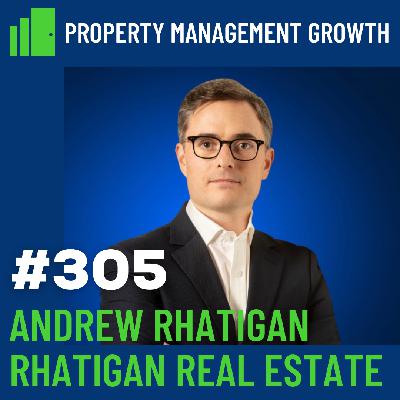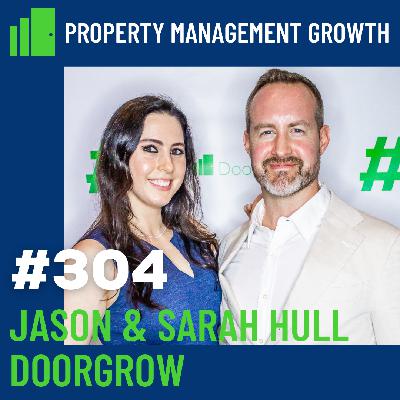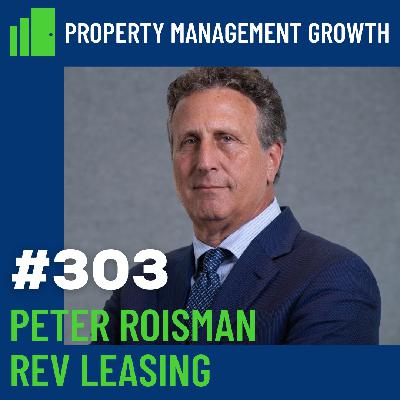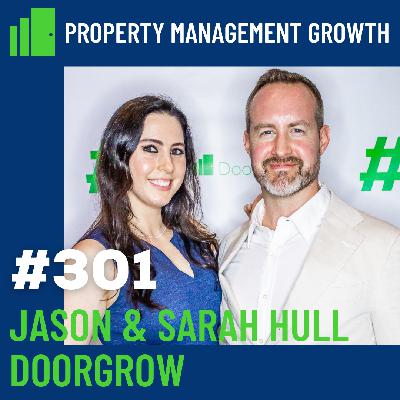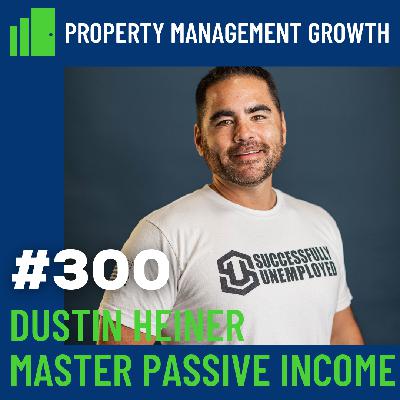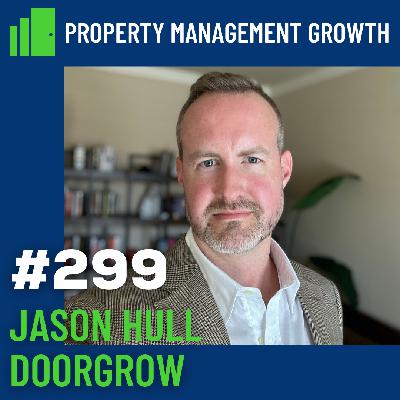DGS 314: Deduct Yourself Before you Wreck Yourself - Cost Segregation for Property Managers
Description
What if you could take out a loan with 0% interest and invest that money for as long as you own your investment property? This is something that cost segregation can help real estate investors do.
In this episode of the #DoorGrowShow, property management growth expert Jason Hull sits down with Daniel Boyd from CSSI Services to talk about cost segregation, one of the most powerful ways to uncover hidden tax savings for property owners and managers.
You'll Learn
[03:10 ] How Cost Segregation Works
[08:54 ] Recent Changes to Depreciation Rules
[11:59 ] Why Real Estate Investors Should Care About Cost Segregation
[18:33 ] The Importance of Working with Tax Experts
Quotables
"The big idea here is there's things in the property that wear out fast and there's things that that wear out slow."
"We love deductions because we want to pay as little tax as possible."
"Wouldn't it be great to take a $100,000 loan with 0 % interest, invest it for as long as you own the property?"
Resources
Transcript
Dan Boyd (00:00 )
Wouldn't it be great to take a $100,000 loan with 0 % interest, invest it for as long as you own the property? And then when you sell the property, you give the loan amount back and you keep whatever you made on that investment.
Jason Hull (00:06 )
I'm Jason Hull, CEO and founder of DoorGrow, the world's leading and most comprehensive coaching and consulting firm for long-term residential property management entrepreneurs. We have been helping people for over a decade and a half.
At DoorGrow, our mission statement is to transform property management business owners and their businesses. We want to transform the industry, eliminate the BS, build awareness, change perception, expand the market, and help the best property management entrepreneurs win. Now, let's get into the show. My guest today is Dan Boyd. We're going to talk about cost segregation, one of the most powerful ways to uncover hidden tax savings for property owners and managers.
you'll learn how to accelerate depreciation, apply repair regulations, and know when expenses can be written off immediately. These strategies can help you improve client cashflow, strengthen relationships, and stand out in the market. All right, Dan, welcome to the DoorGrow Show. Thanks so much for being here with you. So Dan, before we get into cost segregation, which is an interesting subject, that's...
Dan Boyd (01:10 )
Thanks so much. Great to be here with you.
Jason Hull (01:19 )
They had some changes recently, right? There's been some changes in depreciation thanks to Mr. Trump and all this stuff going on, right? The president, I think. So I'm curious what you have to say about that. But tell us, how did you get connected to this business? Give us some backstory on Dan.
Dan Boyd (01:36 )
Sure, yeah, it's a little funny. I meet, you
bet, I meet people from time to time and they say, how on earth did you get into this line of work? Because it's not like anybody goes to school to work in cost segregation or at least cost segregation sales. know, tale as old as time, I knew somebody. And so I was working in the nonprofit sector. My goal was to become a superintendent. So I had gotten a doctorate in education and I was headed in the right direction. But I found out that the average superintendent lasts for about two years.
Dan Boyd (02:05 )
and then they get run out of town for one reason or the other. And it's typically a very stressful two years. And so while it's a rewarding ⁓ position and the compensation is usually pretty good, I thought, why don't I just skip those two years and go into sales and consulting? And so somebody had told me, I think you'd be pretty good at this. And so I started selling cost segregation for our company. And then,
There was an opportunity, they said, you know what, we needed to improve our training and our education, and you've got the perfect background. You understand what we do, but you also come from a world of education, so why don't you join us in that capacity? And so it's been a very good fit since then.
Jason Hull (02:28 )
Got it. So you didn't wake up as like a kid in elementary school saying you wanted to do cost segregation.
Dan Boyd (02:48 )
Believe it or not, no, I can't even say it was on the radar, right? There was like baseball player and then commando and maybe basketball player and football player. So like cost segregation wasn't anywhere near the top of that list.
Jason Hull (02:53 )
Property management business coach was not on my radar back then either, so I get it. All right, cool. So let's get into the topic. So cost segregation, how do we uncover some hidden tax savings?
Dan Boyd (03:14 )
So the big idea here is there's things in a property that wear out fast and there's things in a property that wear out slow. But how do you know? And that's where we come in. So our job is to tell you with our knowledge of the IRS code and buildings, that's what makes us unique. We're very good at both of those things. ⁓ What's the value of everything in your property that wears out quickly? Once you know that, you get to write it off quickly. So let's say you buy an apartment building for a million dollars, Ordinarily, you're going to depreciate that whole building over 27 and a half years.
Well, there's components in that property that are going to last three years, five years, seven years. So shouldn't you be able to write it off sooner? The answer is yes. And that was actually there's a landmark court case that led to this. And that was the big argument is, hey, we replace some of these components every five years. You're making us wait 39 years because it's a commercial property to depreciate it. And the court ruled in their favor and said, you're right.
And so our job is to come in and really give somebody a huge deduction in the first year. Sometimes 25, 30, 40 % of the building value can be deducted as quickly as the first year.
Jason Hull (04:28 )
Okay, got it. That's significant. Okay. And we love deductions because we want to pay as little tax as possible. Absolutely. Yeah. Yeah. Yeah. I love asking business owners. I say, what's the biggest expense in your business?
Dan Boyd (04:34 )
We do. Absolutely. Yeah. If I have yet to meet somebody who's happy with the amount they have to pay and wouldn't reduce it if they had the chance.
Jason Hull (04:49 )
And then they usually say payroll or staffing. And I say, no taxes, but then payroll. Yeah. they forget about it they don't think of it. It's like grabbing, right? Like you just assume it's there and you have to obey the laws. OK, you just move past it. It's like, well, my biggest expense is payroll because people are expensive. Well, yes, that's true. But if there's if you have deductions, right, if it's part of the tax code, you can legitimately I joke.
Dan Boyd (04:55 )
Yep. And they forget about it because they don't think of it. It's like gravity, right? Like you just assume it's there and you have to obey the laws. And so you just move past it. Right. It's like, well, my biggest expense is payroll because people are expensive. Well, yes, that's true. But if there's if you have deductions, right, if it's part of the tax code, you can legitimately I joke like anybody cannot pay taxes. We help people not owe taxes.
Jason Hull (05:17 )
Okay, yeah. So I was flying actually this weekend with my wife for the first time because she's working on her pilot's license. she wanted me to be in the plane with her and wanted me to experience flying with her. And so she doesn't have her license yet. So I got to sit in the back and she had her instructor next to her and they're flying. And her instructor, I was like this, you know, I was making jokes about how flying isn't.
You know, it's pretty relaxing, pretty calm most of the time. And he said, well, I said, I thought it would feel like a roller coaster. He's like, do you want it to feel like a roller coaster? I'm like, sure. And so he does some fancy eight maneuvers or whatever. But what was interesting is when gravity disappeared, when I did not feel gravity anymore, I was like, I'm missing something that I'm so used to. I don't even know that it's there, but you notice it when it's gone quite a bit.
Right? It was very noticeable to not have gravity and just be kind of sitting above my seat a little bit as we kind of dropped. And I was like, okay. So yeah, so taxes can be a little bit like gravity, I guess. Constant pressure.
Dan Boyd (06:26 )
Yeah, and if all of sudden, you you were, yeah, if you were used to paying $100,000 in taxes and then all of sudden you didn't have to, you would notice that.

